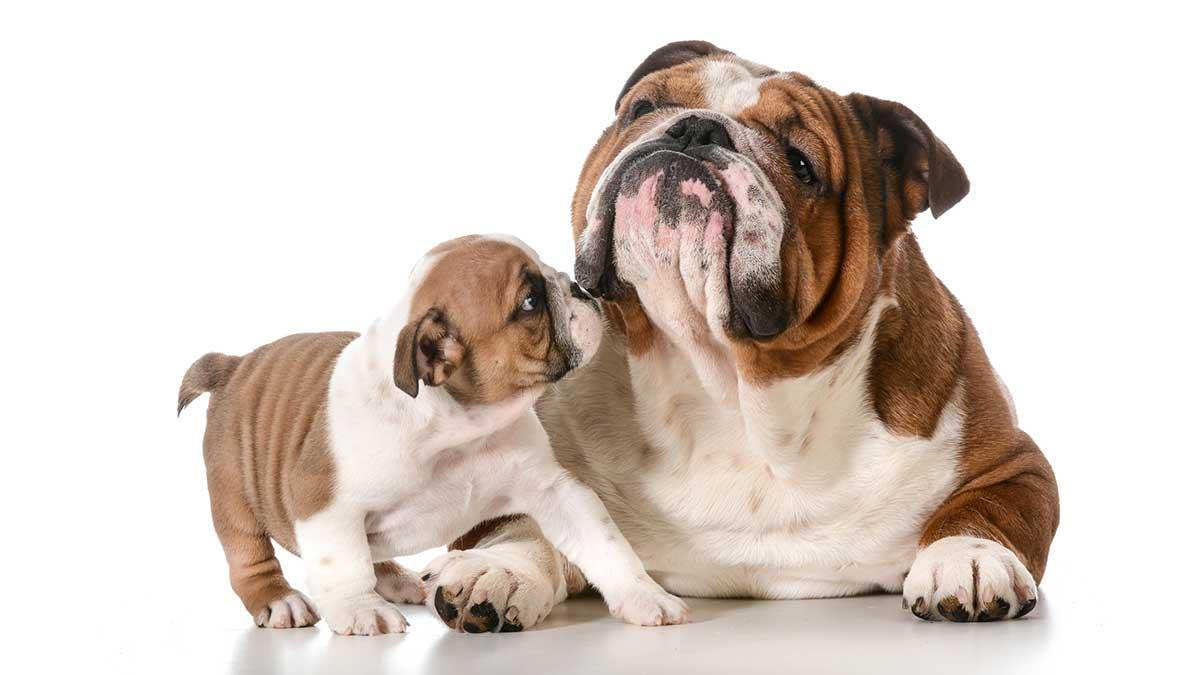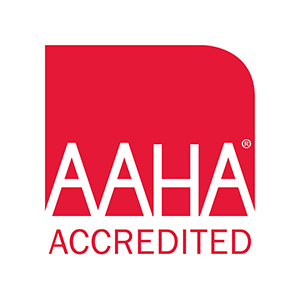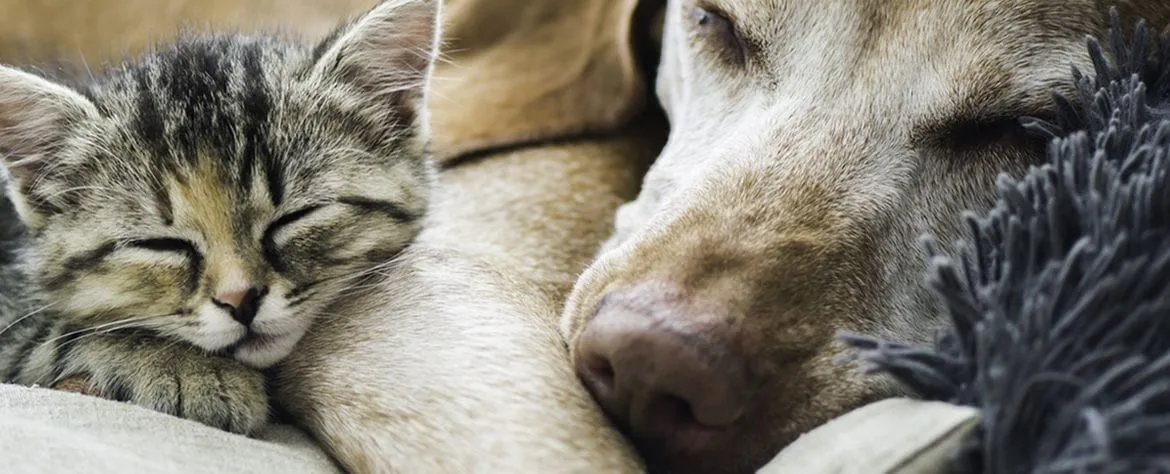
Bringing a new puppy into your life is an exciting and joyful experience. As a responsible pet owner, you want to ensure that your furry friend stays healthy and protected. Vaccines play a crucial role in safeguarding your puppy against preventable diseases, but what about interactions between unvaccinated puppies and vaccinated dogs? Can they coexist safely?
We understand that your priority is to keep your beloved puppy safe while also allowing them to socialize and interact with other dogs. That's why we're here to shed light on the topic of unvaccinated puppies being around vaccinated dogs. So, let's dive in and explore the intricacies of this situation, debunking myths and providing you with the knowledge you need to make informed decisions.
First and foremost, let's emphasize the importance of vaccines for puppies. Vaccines are designed to stimulate your puppy's immune system, preparing it to fight off harmful pathogens that can cause serious illnesses. They are a vital part of preventive healthcare and contribute to your puppy's overall well-being. Proper vaccination not only protects your furry friend but also helps establish herd immunity within the canine community, reducing the risk of disease transmission.
Understanding the basics of puppy vaccinations is key to comprehending the dynamics between unvaccinated puppies and vaccinated dogs. There are core vaccines, which are universally recommended, and non-core vaccines, which are recommended based on factors such as lifestyle and geographic location. Adhering to a vaccination schedule tailored to your puppy's needs is essential for their optimal protection.
Now, let's address the burning question: Can unvaccinated puppies be around vaccinated dogs? The concern stems from the potential risks of disease transmission. Vaccinated dogs have developed immunity against certain diseases, providing them with a level of protection. However, unvaccinated puppies have not yet built up their immunity, leaving them more vulnerable to infections. It's important to remember that some diseases, such as parvovirus and distemper, can be severe and even fatal for unvaccinated dogs.
But fret not! There are ways to balance socialization and your puppy's health. We'll explore recommendations and precautions from our veterinary experts to help you navigate this delicate situation. From managing controlled environments to alternative methods of socialization, we'll provide you with practical strategies to keep your puppy safe while promoting positive interactions.
It's important to note that every puppy's situation is unique, and consulting with a veterinarian is crucial. Our dedicated team at Phoenix Veterinary Center is here to offer personalized advice tailored to your puppy's specific needs. We understand that you want to provide the best possible care for your furry companion, and we're here to support you every step of the way.
So, let's embark on this informative journey together. By the end of this blog, you'll have a deeper understanding of the considerations surrounding interactions between unvaccinated puppies and vaccinated dogs. Let's ensure your puppy's health, happiness, and social well-being are all harmoniously balanced.
Understanding The Importance of Puppy Vaccines
When it comes to your adorable, wiggly bundle of fur, ensuring their health and well-being is your top priority. Puppy immunizations play a vital role in keeping your furry friend protected from potentially life-threatening diseases. In this section, we'll dive into the importance of vaccines and why they are the key to building a shield of protection for your beloved companion.
So, why exactly are vaccines so crucial? Well, imagine a world where diseases like parvovirus, distemper, and canine hepatitis run rampant. These diseases can be devastating, causing severe illness and, in some cases, even leading to the untimely loss of our furry family members. But here's the good news – vaccines have the power to prevent these diseases and provide your puppy with a fighting chance.
Vaccines work by stimulating your puppy's immune system. They contain harmless fragments or weakened versions of disease-causing organisms known as antigens. When your puppy receives a vaccine, their immune system recognizes these antigens as foreign invaders and mounts a defense against them. This process primes your puppy's immune system to recognize and respond quickly to the real threat if they are ever exposed to the actual disease.
Now, let's explore the two types of vaccines your puppy may receive: core and non-core vaccines. Core vaccines are the fundamental shots recommended for all puppies, regardless of their lifestyle or environment. These vaccines protect against highly contagious and potentially fatal diseases that pose a significant risk to dogs. Examples of core vaccines include those that guard against distemper, parvovirus, adenovirus, and rabies.
On the other hand, non-core vaccines are recommended based on individual factors such as your puppy's lifestyle, geographic location, and exposure risks. These vaccines provide additional protection against specific diseases that may be more prevalent in certain regions or situations. Examples of non-core vaccines include those that protect against diseases like Bordetella (kennel cough), Leptospirosis, and Lyme disease.
Now that we have a better understanding of why puppy shots are so crucial let's talk about the recommended vaccination schedule. Inoculations are typically administered in a series of shots, starting when your puppy is around six to eight weeks old. The initial series is followed by booster shots given at specific intervals to ensure your puppy's immune system remains strong and capable of fighting off potential threats.
It's important to note that the vaccination schedule may vary based on factors such as the type of vaccine, your puppy's age, and your veterinarian's recommendations. Your veterinary team will provide you with a personalized vaccination plan that aligns with your puppy's specific needs, ensuring they receive the appropriate protection at the right times.
Remember, puppy shots for your new puppy are not a one-and-done deal. Regular booster shots are necessary to maintain your puppy's immunity as they grow and face different environmental challenges. Following the recommended vaccination schedule is crucial to provide your puppy with continuous protection against dangerous diseases.
Vaccine Protection and Immunity
Think of vaccines as your puppy's secret weapon, equipping them with the power to fend off harmful diseases.
So, how exactly do vaccines work their magic? Let's break it down in a way that even our furry friends can understand.
Imagine your puppy's immune system as a highly skilled team of defenders. When your puppy receives a vaccine, it's like sending a memo to this superhero squad, alerting them to the potential threats they may face in the future. Vaccines contain harmless fragments or weakened versions of disease-causing organisms known as antigens. These antigens are like training dummies, allowing the immune system to recognize and practice fighting against them.
When the vaccine is administered, your puppy's immune system springs into action. It recognizes these antigens as foreign invaders and initiates a response to neutralize and eliminate them. This response involves the production of specialized cells and molecules that act as the frontline warriors against the targeted diseases.
As the immune system defeats these training dummies, it develops a memory of the antigens. This memory is crucial because it allows the immune system to respond rapidly and effectively if it encounters the actual disease-causing organisms in the future. It's like your puppy's immune system saying, "Hey, we've seen this before! We know how to handle it!"
This memory and the resulting immunity are the cornerstones of vaccine protection. Vaccines train your puppy's immune system to be a vigilant defender, ready to jump into action at any moment. By providing this training, vaccines significantly reduce the chances of your puppy developing severe illnesses or experiencing the devastating effects of certain diseases.
But wait, there's more! The power of vaccines extends beyond protecting your individual puppy. They also contribute to the concept of herd immunity. Picture a superhero team working together to shield an entire community. When a large percentage of the population is vaccinated, it creates a collective force of protection. This makes it much more difficult for diseases to spread, as they encounter fewer susceptible individuals. By vaccinating your puppy, you're not only safeguarding them but also contributing to the greater health and well-being of the entire canine community.
It's important to note that vaccines provide different durations of immunity depending on the specific disease and vaccine type. Some vaccines confer lifelong immunity, while others require periodic booster shots to maintain optimal protection. Your veterinarian will guide you through the recommended vaccination schedule for your puppy, ensuring they receive the necessary vaccinations at the appropriate times.
Remember, your puppy's immune system is like a superhero team, and vaccines are their ultimate training regimen. By staying up-to-date on vaccinations, you unleash the inner superhero within your furry friend, equipping them with the tools they need to conquer the villains of disease and emerge as a healthy, vibrant, and resilient companion.
Let's explore the delicate dance between unvaccinated dogs and vaccinated dogs. Can they coexist safely?
Interactions between Unvaccinated and Vaccinated Dogs
Can unvaccinated dogs safely coexist with their vaccinated counterparts? It's like a dance between health and harmony, and we're here to guide you through the steps.
First, let's talk about the level of protection that vaccinated dogs possess. When a dog receives the recommended vaccinations, their immune system becomes a fortress of defense against specific diseases. These vaccines have trained their immune system to recognize and neutralize the disease-causing agents, turning them into mighty defenders. This protection significantly reduces the risk of vaccinated dogs contracting and spreading certain diseases.
But what about unvaccinated puppies? Without the full armor of vaccines, they are more vulnerable to infections. Their immune systems are still in the early stages of development, making them susceptible to the very diseases that vaccines protect against. This vulnerability emphasizes the importance of safeguarding unvaccinated puppies from potential risks. Keeping these pups in the house for the time being might be a good idea.
It's essential to understand that diseases can be transmitted through direct contact, contaminated surfaces, or even airborne particles. Therefore, close interactions between unvaccinated puppies and potentially infected dogs can increase the risk of disease transmission.
So, does this mean unvaccinated pups and vaccinated dogs can never coexist safely? Not necessarily. The key lies in finding a delicate balance between socialization and health protection.
While socialization is crucial for a puppy's development, it's vital to ensure that interactions occur in controlled environments, such as in your house. Consider socializing your unvaccinated puppy with dogs whose vaccination status is known and up to date. This can include dogs belonging to trusted friends, family members, or neighbors who maintain a responsible approach to their pet's health.
Another option is to enroll your puppy in well-managed puppy socialization classes. These classes often require proof of vaccination for participating dogs, minimizing the risk of disease transmission. They provide a supervised setting where puppies can learn and play together, building important social skills without compromising their health.
Additionally, it's important to avoid high-risk areas during the vulnerable period when your puppy has not yet completed their vaccination series. These areas may include dog parks, pet stores, or other public spaces where unvaccinated or potentially infected dogs frequently gather. Opt for safer alternatives such as puppy playdates in controlled environments or puppy-friendly areas where the risk of exposure to contagious diseases is significantly lower.
Consulting with your veterinarian is crucial in navigating this delicate dance. They can provide guidance on the appropriate time to begin socialization, recommend specific precautions based on your puppy's individual needs, and help you make informed decisions about potential interactions.
Remember, the health and well-being of your unvaccinated puppy should always be the top priority. While it may require some adjustments and temporary limitations, it's important to ensure their safety until they have completed their vaccination series and developed a stronger immune system.
Socialization And Exposure for Puppies
Ah, the joys of puppyhood – those adorable wet noses, wagging tails, and boundless energy. As pet parents, we want to provide our furry friends with the best start in life, and socialization plays a pivotal role in shaping their behavior, confidence, and overall well-being. In this section, we'll explore the importance of socialization and how to create positive and enriching experiences for your puppy while considering their health. Let's embark on this exciting journey together!
The Power of Socialization: Socialization is like a magical ingredient that helps puppies develop into well-rounded, confident, and happy companions. It involves exposing them to various people, animals, environments, sounds, and experiences from an early age. These positive interactions help puppies build resilience, learn appropriate behaviors, and develop the skills to navigate the world around them.
Balancing Socialization and Health: While socialization is crucial, we must strike a delicate balance to protect our unvaccinated puppies. During their vulnerable stage, when they haven't completed their vaccination series, it's essential to minimize the risk of exposure to potentially contagious diseases. But fear not; there are safe and responsible ways to foster socialization while prioritizing your puppy's health.
Controlled Environments: Create controlled environments where your puppy can interact with vaccinated dogs or other trusted animals whose health status is known. These controlled playdates or socialization opportunities can take place in your backyard, a friend's secure yard, or a designated puppy-friendly area. By carefully selecting playmates, you reduce the risk of disease transmission while providing valuable socialization experiences.
Puppy Playgroups and Classes: Consider enrolling your puppy in well-structured and well-managed puppy playgroups or socialization classes. These programs often require proof of vaccination, ensuring a safer environment for interactions. Under the supervision of experienced trainers, puppies learn appropriate play behavior, communication skills, and positive manners. These classes also provide an opportunity for you to learn alongside your furry friend, strengthening the bond between you.
Positive Exposure to New Experiences: Socialization isn't limited to interactions with other animals; it also involves exposing your puppy to various sights, sounds, and environments. Introduce your puppy to different surfaces, textures, and objects in a controlled manner. Gradually expose them to new experiences, such as car rides, walks in different neighborhoods, or visits to pet-friendly stores, while ensuring their safety and well-being.
Puppy Parties and Gatherings: Organize puppy parties or gatherings with friends, family, or fellow puppy parents who maintain responsible pet care practices. These events provide an opportunity for your puppy to interact with other puppies, experience new faces and scents, and enjoy a fun and engaging environment. Remember to ensure that all attending puppies are up to date on their vaccinations for added peace of mind.
Positive Reinforcement Training: Incorporate positive reinforcement training methods into your socialization efforts. Reward your puppy's calm and appropriate behaviors with treats, praise, and play. This approach not only helps them learn desirable behaviors but also reinforces their confidence in new situations.
By following these guidelines, you can strike a harmonious balance between socialization and your puppy's health. Remember, socialization is a lifelong journey, and each positive experience contributes to the growth and well-being of your furry companion. As your puppy grows, continue to expose them to new experiences, people, and animals, helping them become confident and adaptable adult dogs.
Here are some specific recommendations and precautions to support a successful and safe socialization journey for your unvaccinated puppy. Join us as we provide practical tips to ensure a pawsitive and enriching socialization experience for your furry friend.
Recommendations and Precautions
To ensure a successful and safe journey, let's explore some practical recommendations and precautions that will set you and your furry friend up for pawsitive experiences. Get ready to unleash your puppy's social butterfly!
Consult Your Veterinarian: Before diving into socialization activities, consult with your veterinarian. They will evaluate your puppy's individual health needs and provide personalized recommendations. Your veterinarian may suggest delaying certain socialization activities until your puppy completes their vaccination series or may advise additional precautions based on specific health concerns.
Choose Safe and Controlled Environments: When planning socialization outings, opt for controlled environments where you have more control over potential risks. Secure backyards, puppy-friendly parks, or well-managed puppy playgroups provide controlled spaces for interactions. Ensure that these environments are clean, safe, and suitable for puppies.
Select Playmates Carefully: When introducing your puppy to other dogs, choose playmates whose vaccination status is known and up to date. Consider arranging playdates with trusted friends or family members who maintain responsible pet care practices. This way, you can foster positive interactions while minimizing the risk of disease transmission.
Maintain Proper Hygiene Practices: Good hygiene is essential for preventing the spread of diseases. Make sure to clean and disinfect any toys, leashes, or other items that your puppy may come into contact with during socialization outings. This simple step can help reduce the risk of contamination and keep your puppy safe.
Observe and Monitor Interactions: Pay close attention to your puppy's behavior and body language during socialization activities. Monitor their comfort level, ensuring they are enjoying the interactions and not showing signs of fear or stress. If necessary, intervene and provide a supportive and reassuring presence for your puppy.
Positive Reinforcement and Reward: Use positive reinforcement techniques during socialization experiences. Reward your puppy for calm and appropriate behaviors with treats, praise, and play. This encourages positive associations with new people, animals, and environments, making socialization a fun and rewarding experience for your furry friend.
Gradual Exposure to New Experiences: Introduce new experiences gradually to help your puppy build confidence. Start with low-stress environments and gradually increase the level of exposure. This allows your puppy to adapt and become more comfortable with new situations, sounds, and surroundings.
Respect Individual Boundaries: Each puppy is unique, and it's essential to respect their individual boundaries. Some puppies may be more outgoing and eager to socialize, while others may be more reserved or cautious. Allow your puppy to progress at their own pace, providing support and encouragement along the way.
Continued Socialization Beyond Puppyhood: Socialization should be an ongoing process throughout your dog's life. Even after completing the vaccination series, continue exposing your dog to new experiences, people, and animals. This helps maintain their social skills and adaptability, ensuring they remain confident and well-adjusted adult dogs.
Remember, socialization is about creating positive experiences and fostering healthy connections for your puppy. By following these recommendations and taking necessary precautions, you can set your furry friend up for a lifetime of social confidence and happiness.
Puppy Socialization
By prioritizing your puppy's health while nurturing their social skills, you are setting them up for a lifetime of happiness and harmonious interactions. Let's recap the key takeaways and celebrate the power of socialization.
Socialization is Vital
Striking A Balance
Get Guidance from the Experts
Use Positive Reinforcement and Patience
Enjoy A Lifelong Adventure
Contact Phoenix Veterinary Center And Schedule Your Puppy Shot's Today!
Ensuring your puppy's health and happiness requires proper vaccination. At the Phoenix Veterinary Center, we provide comprehensive vaccination services for puppies in Phoenix, AZ, and nearby areas.
To schedule your puppy's shots with our senior pet care team, contact us today at (602) 559-5500 or send us a message online. A member of our team will answer your initial questions and help you book an appointment with one of our experienced and professional Phoenix veterinarians. If you are happy with the veterinary services we provide, then please do not hesitate to leave us a review or refer us to your friends. Call today!



